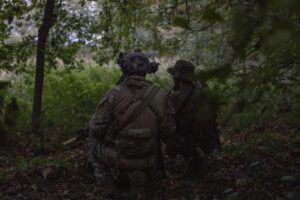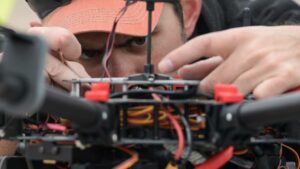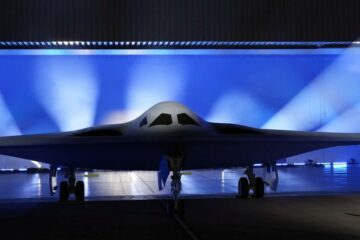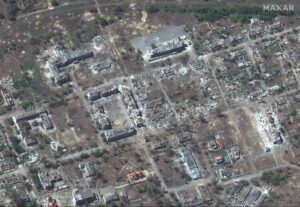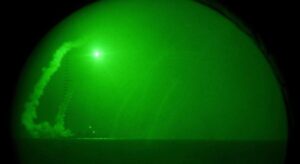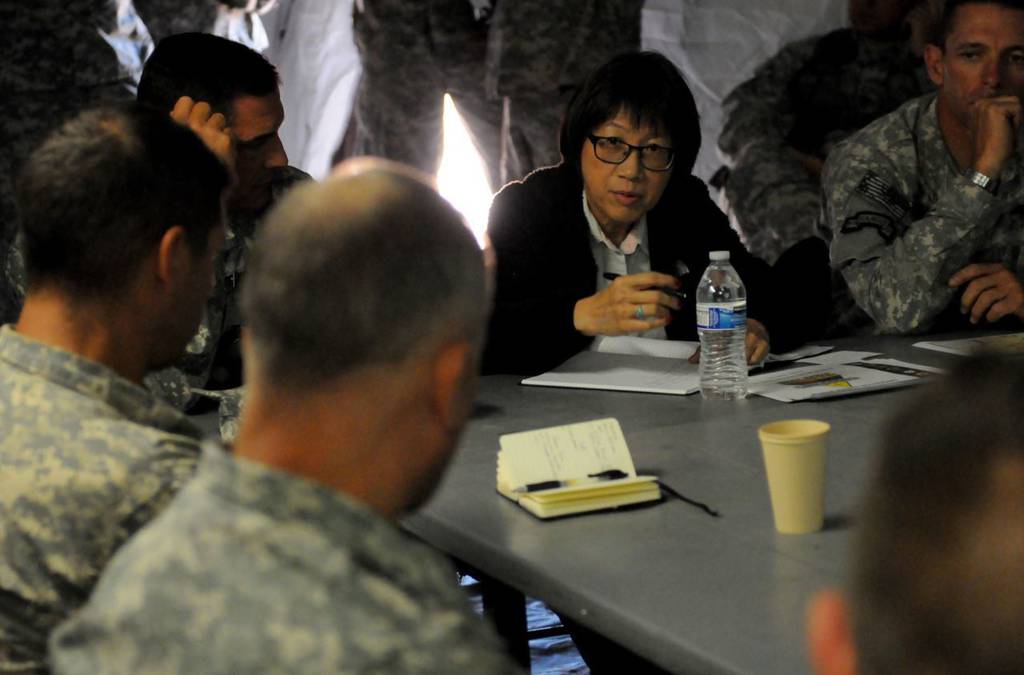
WASHINGTON — The U.S. Department Defense has established three new roles aimed at fostering innovative technology and research.
The assistant secretary of defense positions, which the Pentagon announced July 24, will focus on three areas: critical technology; science and technology; and mission capabilities. According to the undersecretary of defense for research and engineering, Heidi Shyu, who will oversee the roles, the move gives more authority to her office to pursue key technology projects.
“The establishment of these roles within Research & Engineering better positions our team to execute upon our mission of preserving our nation’s technological edge, now and into the future,” Shyu said in a statement.
Congress approved the positions in the fiscal 2023 National Defense Authorization Act. To fill them, the Pentagon elevated three existing deputy assistant secretary of defense roles and eliminated the deputy chief technology officer job. The department appointed the officials serving in the newly elevated roles to fill the new slots until President Joe Biden makes formal nominations, which will require confirmation from the Senate.
The assistant secretaries will report directly to Shyu and serve as advisers within their mission areas. Maynard Holliday will act as assistant secretary of defense for critical technologies; Steven Wax will perform the duties of assistant secretary of defense for science and technology; and Thomas Browning will helm the role of assistant secretary of defense for mission capabilities.
Holliday oversees key technology areas, including 5G networking, hypersonic innovations and advanced computing. He previously served as a senior engineer at the think tank Rand and helped establish the Defense Innovation Unit in 2015.
Wax has spent more than 45 years in defense research and development roles. He was previously the chief scientist at the Defense Threat Reduction Agency, and he spent 12 years at the Defense Advanced Research Projects Agency, where his portfolio spanned physical science, cognitive science and mathematics.
Prior to his current role, Browning was director of DARPA’s adaptive capabilities office. He spent 30 years in the Air Force, retiring as a colonel after leading a programs management office.
The Defense Department also established eight deputy positions in science and technology futures; science and technology foundations; science and technology program protection; applied technology; enabling technology; multidomain joint operations; prototypes and experiments; and mission integration.
Courtney Albon is C4ISRNET’s space and emerging technology reporter. She has covered the U.S. military since 2012, with a focus on the Air Force and Space Force. She has reported on some of the Defense Department’s most significant acquisition, budget and policy challenges.
- SEO Powered Content & PR Distribution. Get Amplified Today.
- PlatoData.Network Vertical Generative Ai. Empower Yourself. Access Here.
- PlatoAiStream. Web3 Intelligence. Knowledge Amplified. Access Here.
- PlatoESG. Automotive / EVs, Carbon, CleanTech, Energy, Environment, Solar, Waste Management. Access Here.
- BlockOffsets. Modernizing Environmental Offset Ownership. Access Here.
- Source: https://www.defensenews.com/battlefield-tech/2023/07/25/pentagons-chief-technology-office-gets-three-new-leadership-slots/
- :has
- :is
- :where
- 10
- 12
- 2012
- 2015
- 2023
- 30
- 5G
- 70
- a
- According
- acquisition
- Act
- advanced
- After
- agency
- aimed
- AIR
- Air Force
- also
- and
- announced
- applied
- appointed
- approved
- areas
- AS
- Assistant
- At
- authority
- authorization
- Better
- biden
- budget
- capabilities
- challenges
- chief
- chief technology officer
- cognitive
- computing
- confirmation
- covered
- critical
- Current
- Defense
- Defense Advanced Research Projects Agency
- Defense Department
- Department
- deputy
- Development
- directly
- Director
- Edge
- elevated
- eliminated
- emerging
- Emerging Technology
- enabling
- engineer
- Engineering
- establish
- established
- establishment
- Ether (ETH)
- execute
- existing
- experiments
- fill
- Fiscal
- Focus
- For
- Force
- formal
- fostering
- Foundations
- from
- future
- Futures
- gives
- he
- helped
- her
- his
- HTTPS
- images
- in
- Including
- Innovation
- innovations
- innovative
- innovative technology
- integration
- into
- Job
- joe
- Joe Biden
- joint
- jpg
- July
- Key
- Leadership
- leading
- MAKES
- management
- mathematics
- Military
- Mission
- more
- most
- move
- National
- Nations
- networking
- New
- new slots
- newly
- nominations
- now
- of
- Office
- Officer
- officials
- on
- Operations
- our
- oversee
- pentagon
- perform
- physical
- plato
- Plato Data Intelligence
- PlatoData
- policy
- portfolio
- positions
- preserving
- president
- president joe biden
- previously
- Program
- Programs
- projects
- protection
- prototypes
- pursue
- rand
- reduction
- report
- Reported
- reporter
- require
- research
- research and development
- Role
- roles
- s
- Said
- Science
- Science and Technology
- Scientist
- secretary
- Senate
- senior
- serve
- serving
- she
- significant
- since
- slots
- some
- Space
- Space Force
- spent
- Statement
- steven
- tank
- team
- technological
- Technologies
- Technology
- than
- The
- The Future
- their
- Them
- These
- think
- think tank
- threat
- three
- to
- u.s.
- unit
- until
- upon
- was
- WAX
- which
- WHO
- will
- with
- within
- years
- zephyrnet

